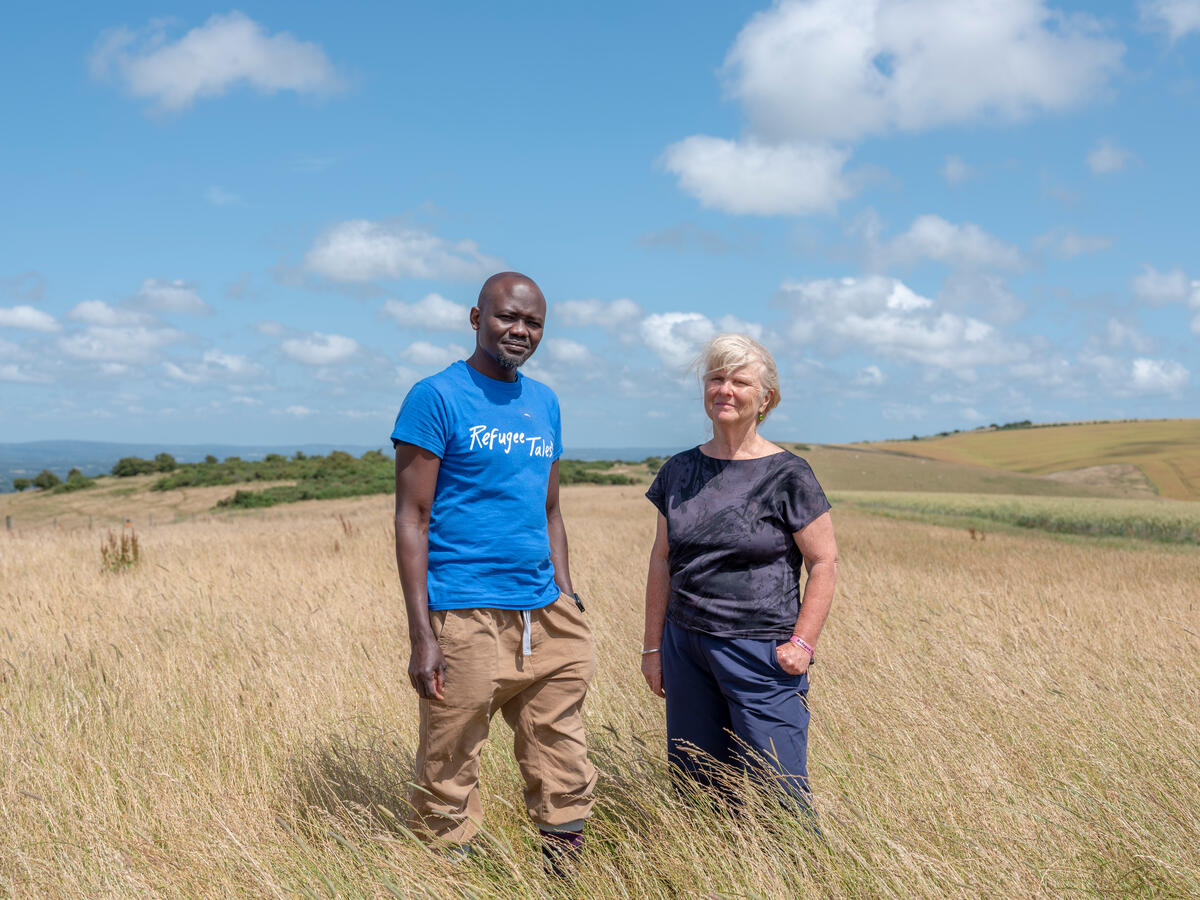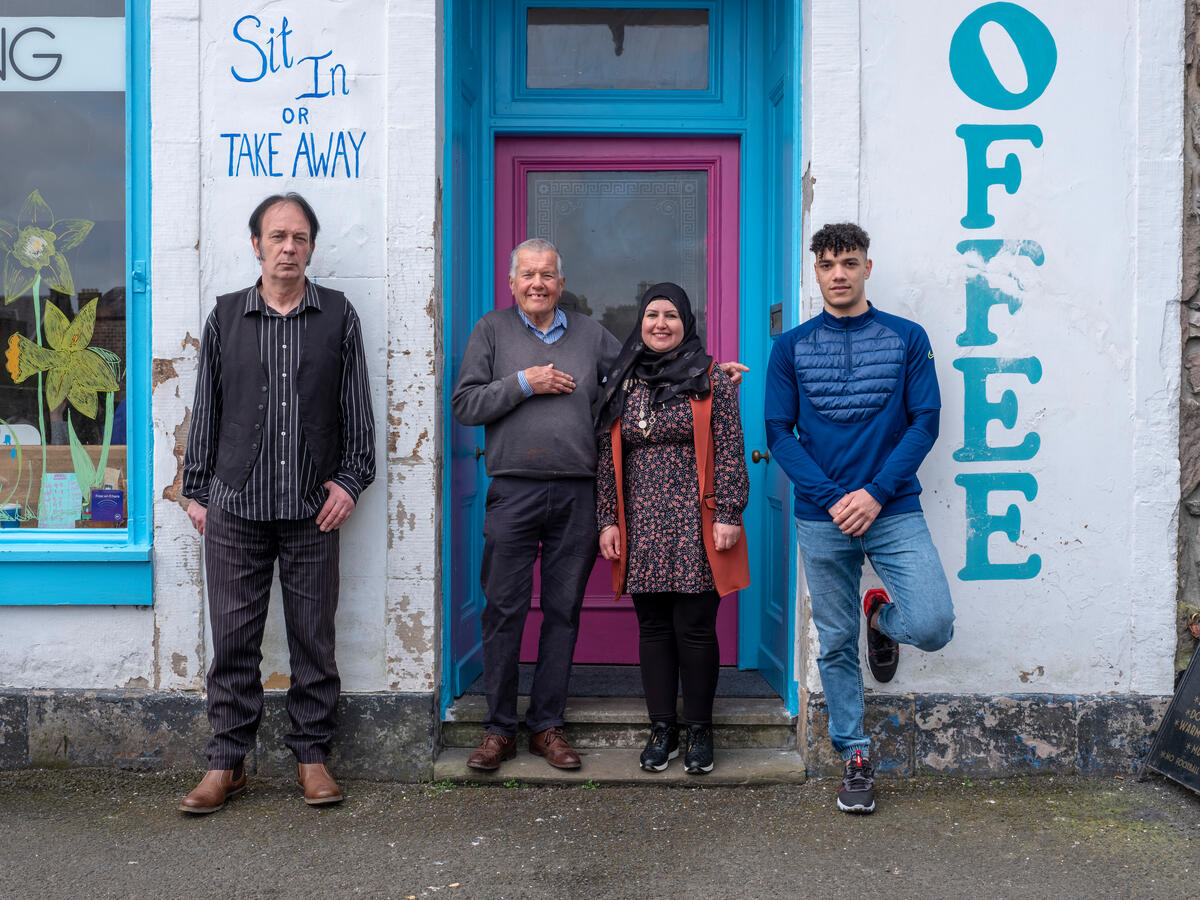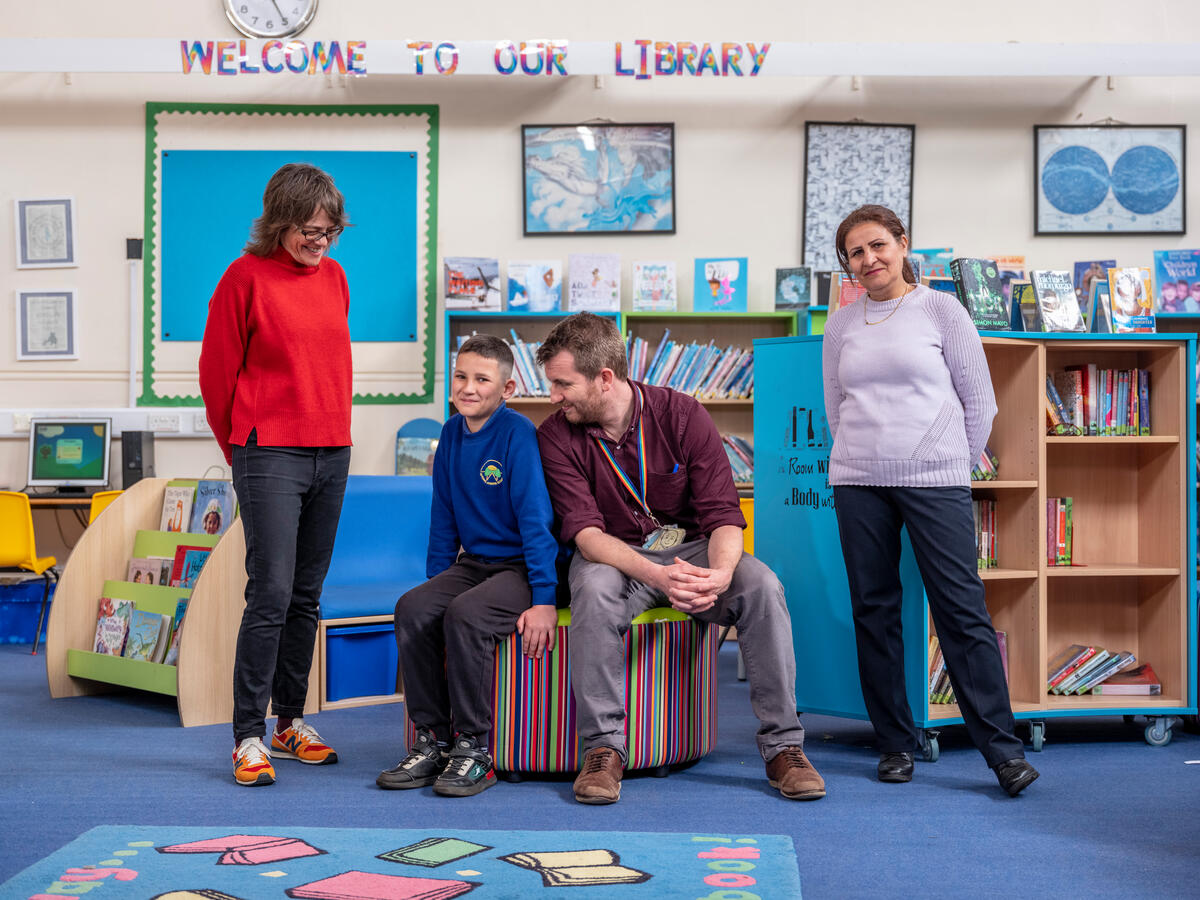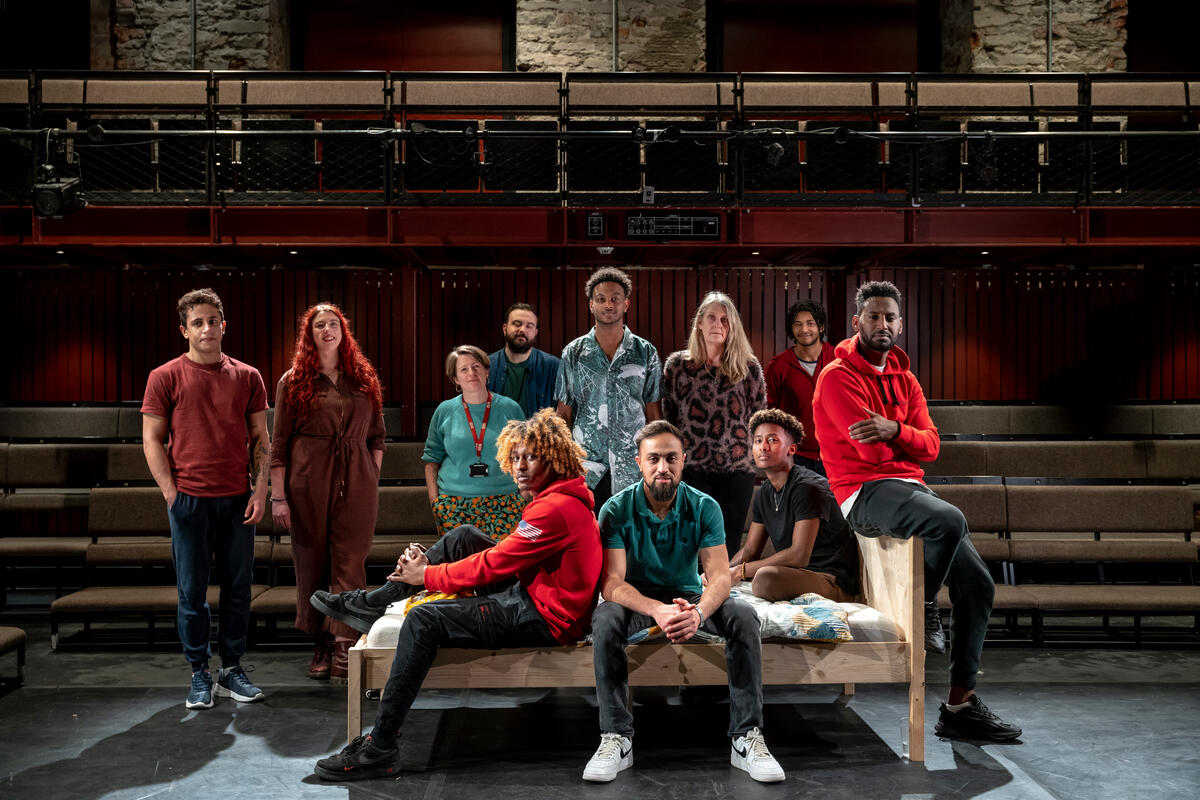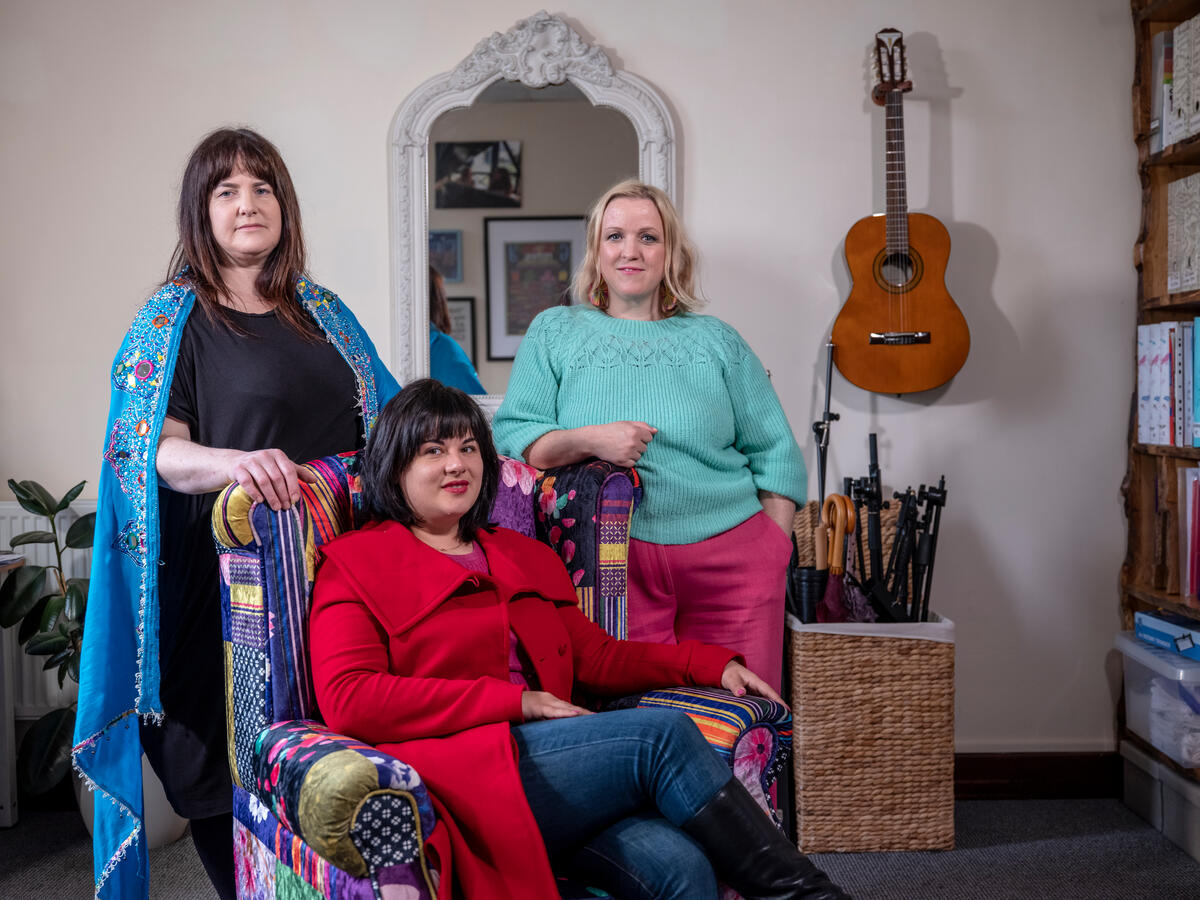Hampton Court Palace flower show to highlight the plight of refugees
Hampton Court Palace flower show to highlight the plight of refugees

Conceptual garden at RHS Hampton Court Palace Flower Show (5 -10 July) shines spotlight on global refugee crisis.
As worldwide forced displacement is at its highest levels ever recorded, visitors to the Royal Horticultural Society (RHS) Flower Show from 5 to 10 July will be encouraged to stop and consider the plight of the world’s refugees fleeing conflict, violence and persecution, and the risks they take to find shelter.
Moved by harrowing stories of individuals and families forced to flee their homes in war-torn countries, London-based garden designers Tom Massey and John Ward are using horticulture to draw attention to one of the biggest humanitarian crises ever seen, with ‘Border Control’ supported by UNHCR, the UN Refugee Agency.
Around the world, more than 65 million people have been forced from their homes. More than half of them are children. The dangers in reaching safety are increasing. At sea, 10,000 people have died crossing the Mediterranean since the start of 2014. Land journeys also present risks, with many people losing their lives as they flee or pushed back across borders. In the last year, barbed wire fences have been erected, and tear-gas and batons have been used on refugees.
The ‘Border Control’ garden questions the humanity of closing borders to those fleeing for their lives. At its centre is a lush and fertile wildflower meadow surrounded by a treacherous moat. A barbed-wire fence and turnstile entrance create an intimidating approach, illustrating how few can gain legal entry. Caught on the barbed wire are items collected by UNHCR on the beaches of Greek islands: life jackets, backpacks, lost toys and other personal belongings - evidence of dangerous journeys and lives in transit.
Beyond the border, plants fight to survive amongst the rubble, desperate to reach the shelter beyond, wilted or dying and starved of water and nutrients. On approach, the garden evokes feelings of despair, but amid the desolation, flashes of intense colour represent glimpses of hope, strength and dignity, conveying a sense of survival.
The designers, who use British native plants to represent residents and non-native plants to represent refugees, say: “Accounts of refugees fleeing brutal conflicts, violence and persecution to find shelter inspired the design of our garden. It’s staggering to think that over one million people were so desperate they put themselves at the mercy of smugglers to cross the Mediterranean last year. So many thousands didn’t make it and we think the whole world was shocked by the images of three year-old Alan Kurdi found dead on a beach in Turkey.
“Sometimes a lack of knowledge and understanding can lead to a level of misinformation. It is important that we discuss the refugee crisis and that we remember we are talking about human beings - people like us - who are fleeing for their lives and have found themselves in a perilous situation not of their making.”
Young refugees from South West London will be involved in the planting of the garden. The group, from Community Action for Refugees and Asylum Seekers, meet regularly for gardening sessions that are considered a fun and therapeutic way of getting involved in their community.
They will not be the first refugee gardeners at Hampton Court. One of the palace’s key architects was Daniel Marot, a Huguenot who fled France in 1685 and sought refuge in England. Marot designed the gardens at Hampton Court and much of its furniture.
RHS Shows Manager, Dave Green, says: “The refugee crisis is a terrible situation and RHS Hampton Court Palace Flower Show is a powerful platform to raise awareness of the suffering of so many. I hope the garden makes a difference to peoples’ perceptions and reinforce the idea that there are people all over the world who are in desperate need of help and support."
‘Border Control’ is being supported by UNHCR and will raise awareness of the UN Refugee Agency’s global campaign ‘Nobody Left Outside’, highlighting the need to provide shelter for families escaping conflict and persecution.
ENDS
About UNHCR:
UNHCR, the UN Refugee Agency, was established on December 14, 1950 by the United Nations General Assembly. It is mandated to lead and co-ordinate international action to protect refugees and resolve refugee problems worldwide. Today, a staff of more than 9,300 people in more than 120 countries continues to help and protect millions of refugees, returnees, internally displaced and stateless people. In recognition of its work, UNHCR received two Nobel Peace Prizes, in 1954 and 1981.
For further information, interviews, photo and video footage please contact:
Laura Padoan, [email protected], 07775566127 or 0203 761 9092
For press access to RHS Hampton Court please contact:
Ed Horne, [email protected], 07776193226



